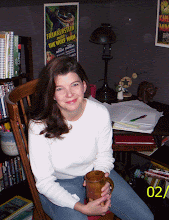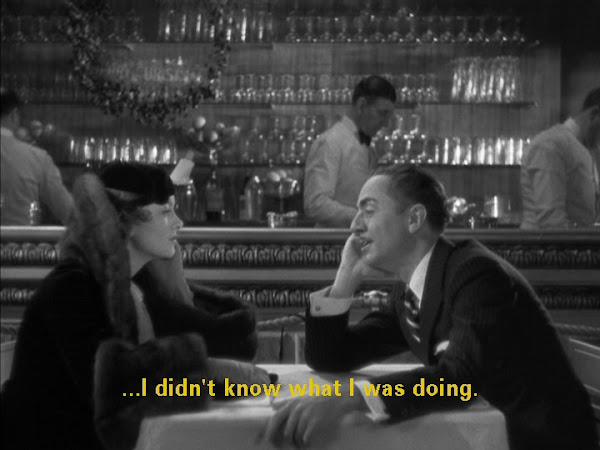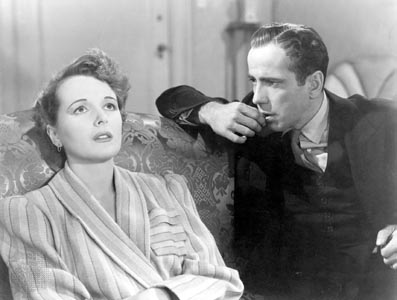

Mark Murray is one of the very talented authors at Arctic Wolf Publishing. He runs the e-zine Arcane Twilight. Last week he agreed to answer some of my many questions and I have posted his answers here for your reading pleasure. Enjoy!!
Last week, I interviewed a new talent in the fantasy writing field. Mark Murray is experienced in short story writing and runs the e-zine Arcane Twilight. Today's post is a copy of his interview.
Tell us about Warders of the Gate. It's part of a trilogy, correct?
Warders of the Gate is part of a planned trilogy, yes. With Warders of the Gate,
I've set the stage for the war and introduced some main characters. The background
to the warders is that elves have built four magical gateways from their world into the
land of Rhillai.
To keep the gates secure, the elves have magically altered humans into
being able to shape-change into animals. These shape-changers are the warders for
the gates and only they can open the gates. Rhillai has nine duchies and two dwarven kingdoms. The duchies are ruled by a High King. But, the seat of the High King is vacant. Warders of the Gate sets up the war for someone to be High King. To make matters
worse, a mage, Alisandra, has opened a gateway to another world to allow an evil army,
the Hylnan, to enter Rhillai.
The second book, War of the Gates, deals with the alien Hylnan conquering everything
in their path, five dukes uniting to take control of the other duchies and the gates because a
one in five chance at High King is much better than one in nine, and lastly, there is one duke
fleeing with her army to eventually join with a small band of dwarves, warders, and dragons. I have one strong female lead in Warders of the Gate with Alisandra, the mage behind letting
the Hylnan through. And I have one strong female lead in War of the Gates with Duke Rachel
Iorion.
But, the idea that I keep throughout the whole story is that no character is safe. Some will be killed.
In addition to novel writing, you are also an accomplished penner of short stories. Do you have a preference for writing short stories vs. novel length fiction?
I actually don't have a preference right now. I continue to write both short stories and novels.
The hard part is finding the time to get them all done.
When you're not writing, what do you read?
I really love Robert B. Parker's writing. I've read all the Spenser novels at least twice and I'm trying to read the rest of the Jesse Stone series. I used to love to read fantasy, scifi, and horror, but now that I'm actually writing them, I find that I don't read them as much.It's weird. I used to go into bookstores and head straight for the fantasy/scifi section. Now, I tend to just roam around looking for something to pique my interest. And I read online forums that pertain to martial arts like aikido and kali/silat.
Let's talk about craft a little bit. As a writer, do you prefer to tell your story in first
person or third person...or does it depend on the work? Do you prefer single point
of view or multiple point of view?
Um, yeah. I'm really bad about first/third person and single/multiple views. For me, it does depend on the work or story. And after reading tons of books from unknown authors to bestsellers, I've seen all kinds of variations. That tells me, in the end, that what matters isn't the view but the story being told. If you can convey a great story in just first person, it's still a great story. If you can convey a great story using variations, it's still a great story.
What are you working on now? Do you ever find yourself working on multiple projects?
I'm working on:
1. War of the Gates, the next book in the Rhillai series.
2. The second book to Power Play, no title yet. Power Play is mysecond written novel,
but it hasn't been published yet.
3. A western novel, no title yet.
4. Short stories for DargonZine.5. I have a horror novel started, but it is on hold right now because of the above projects. I have a scifi story in my head that's been waiting years (probably ten or so) for me to sit down and type it out. So, yes, I work on multiple projects. I have stories floating around in my head that stay there until I type them out. And I don't write with pen or pencil or typewriter. I've neverbeen able to do that. I'm weird that way. I can only type them onto a computer.
Tell us about your web-zine Arcane Twilight. How did it come to be?
I was writing for DargonZine and wanted another outlet for stories. DargonZine is a great
place to write, but it is a shared world and as such has boundaries. Stories are set within
that shared world. If anyone ever wants some great experience with writing, including getting
your stories critiqued by all other writers, then DargonZine is a great place to be. My writing improved dramatically because of DargonZine. So, yes, I plug it when I can because of the value.
On the down side, if you want to write scifi or horror, you have to go elsewhere. So, another writer, Carlo Samson, and I decided to start an E-Zine for fantasy, scifi, and horror stories. In fact, we've even showcased artwork. Arcane Twilight was startedas a personal outlet for writing other stories and it grew from there.
You mention you are working on several other projects, including a western. Do you find you prefer writing in one genre over another?
So far, not really. With fantasy, I don't have as much research to do. With the western,
I had quite a bit more but that's because there are real events, real places, and real
people in the setting. You just can't make it all up like in fantasy. While I don't have a
preference, I am finding that other genres can have significantly more research time.
Do you still have a "day job?" or have you attained what all writers want...the ability to write full time?
It would be great to write full time, but alas, I'm still one of the majority that has a day job. I'm thankful that it's mostly Monday-Friday though. I also have martial arts a minimum of four days a week and sometimes five. Toss in regular chores, family time, book signings, seminars, etc and I really could use more hours in the day.
Do you have any advice or words of encouragement for writers working toward getting published?
I've found two major things. The first is keep writing. I know it's silly and it's what a lot of other authors say, but it's a basic truth. Most professional athletes practice insane hours of the day and week. Olympic level athletes go beyond that. Top tier musicians live and breathe their work. Why should writers be any different?
Enter contests, write for fun, join a writing group, submit pieces for publication, take
a writing class, etc. I sent a short story to Marion Zimmer Bradley long, long ago for her MZB Fantasy magazine. It was rejected, but MZB sent a handwritten note in the return letter. I had
understood exactly what my story was about, but as a new writer, I didn't let that come through in the story. Naturally, MZB hadn't understood the story either, but her reply helped me to realize my errors. I kept writing and trying to get better, but had I not sent that in, then I might not have realized I had a big hole in my writing.The second is don't give up. Just because a publishing house has rejected your work doesn't necessarily mean it is badly written or not worth publishing. Publishing houses are businesses and they look for specific trends to publish. Your piece might not fit that trend rather than it being horribly written.


